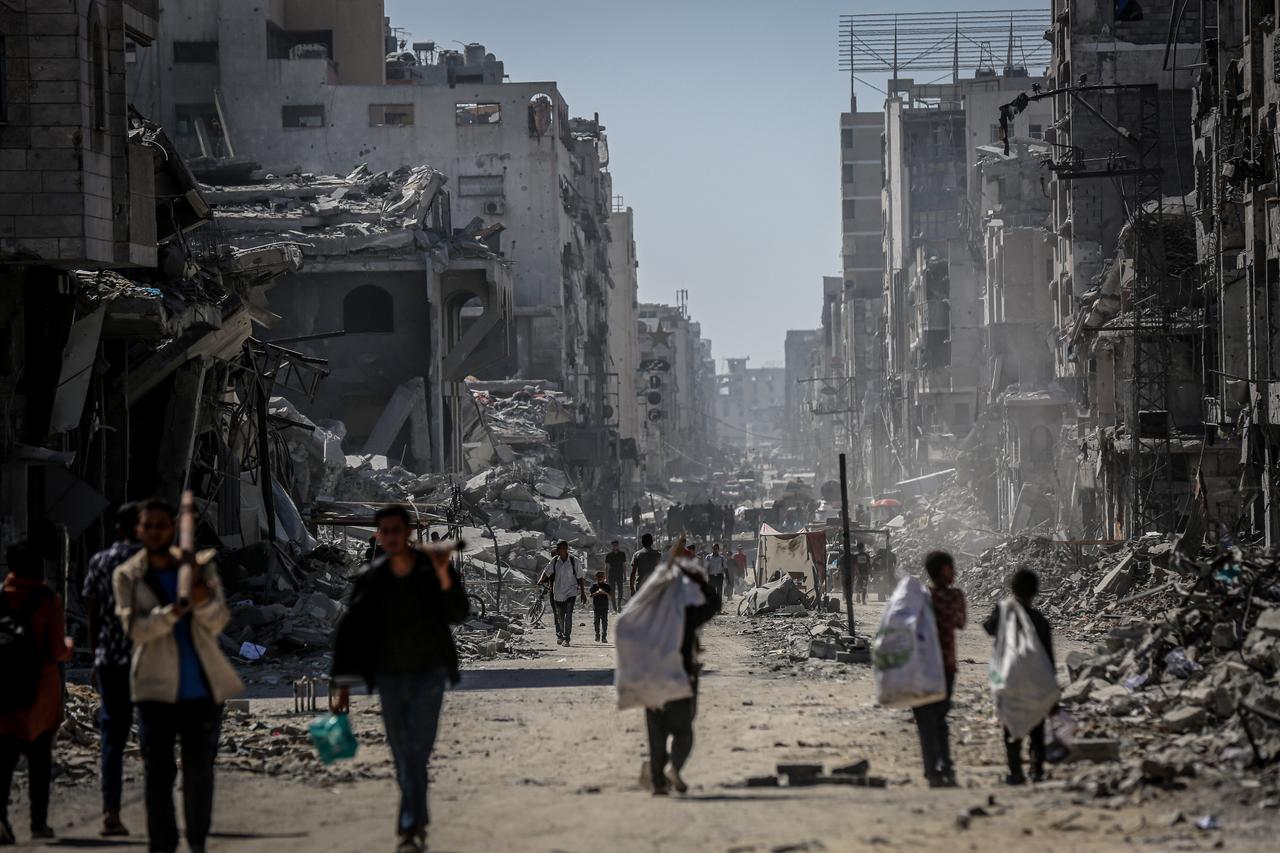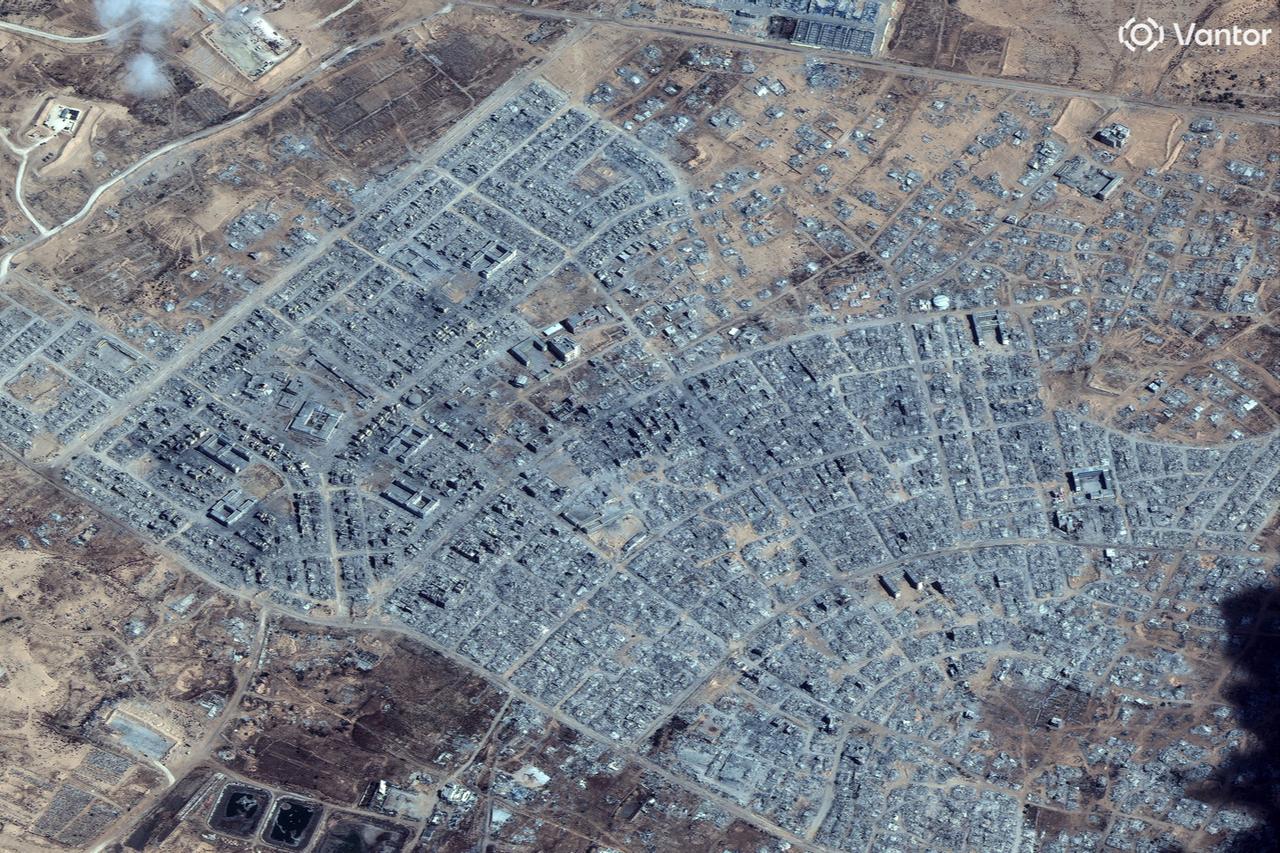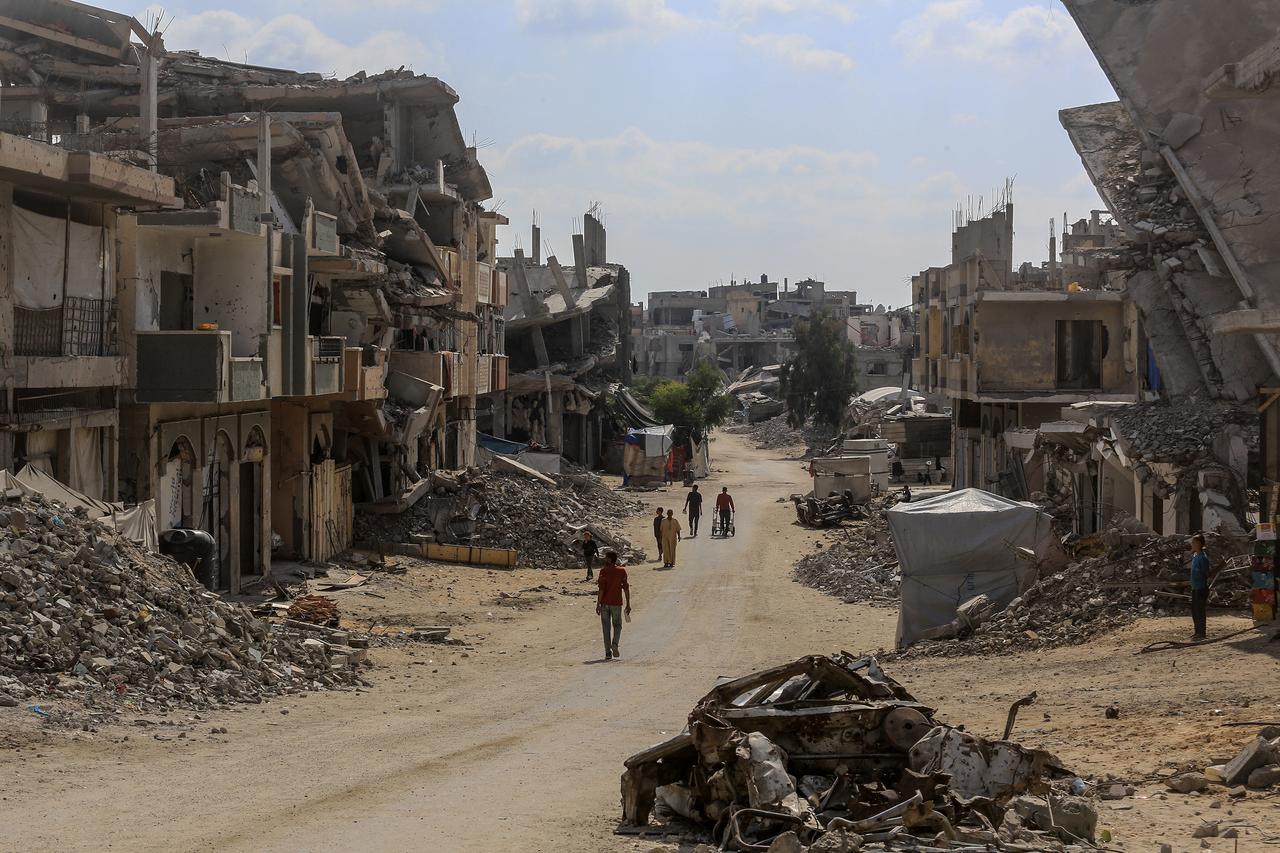
The Israeli army launched airstrikes in Rafah in southern Gaza on Sunday despite a ceasefire agreement with Hamas that took effect last week, the military said.
The strikes targeted what Israel called Hamas military structures following anti-tank missile attacks and gunfire on Israeli troops, according to an Israeli army statement on the social media platform X.
The Israeli army said it began striking to dismantle tunnel shafts and "military structures" in the area.
Israel's public broadcaster KAN reported the strikes occurred following an exchange of fire with Hamas. Israeli media outlet Maariv claimed the attack came after a military vehicle was targeted by Hamas members.
Israeli Prime Minister Benjamin Netanyahu held talks with Defense Minister Israel Katz and heads of the security establishment to discuss the situation. Netanyahu instructed forces to act forcefully against what he called "terrorist targets" in Gaza, his office said.
National Security Minister Itamar Ben-Gvir called on Netanyahu to "resume combat in the Gaza Strip with maximum force" in a post on social media platform X.

Hamas said it was not aware of any incidents or clashes in Rafah and denied responsibility for the reported attacks on Israeli troops.
"Contact with our remaining fighters there has been lost since the resumption of the war in March this year," Hamas' armed wing, the Qassam Brigades, said in a statement.
"We have no involvement in any incidents occurring in that area," it added.
Hamas stressed its commitment to the ceasefire deal across all areas of the Gaza Strip. Senior Hamas member Izzat al-Rishq denied Israeli claims, accusing Israel of "fabricating flimsy pretexts to justify its crimes" in Gaza.
Five Palestinians were killed and others injured in an Israeli airstrike in central Gaza on Sunday despite the ceasefire agreement, medical sources said.
Witnesses said a fighter jet struck a coffee shop in a residential area in western Al-Zawayda, where hospitals and tents sheltering displaced civilians are located. Al-Zawayda does not fall under Israeli-occupied areas covered by the ceasefire deal that took effect on Oct. 10.
The attack came shortly after the army launched airstrikes in Rafah.

A ceasefire and hostage swap agreement was reached between Israel and Hamas on Oct. 8, based on a phased plan presented by U.S. President Donald Trump. Phase one included the release of Israeli hostages in exchange for Palestinian prisoners.
The plan also envisions the rebuilding of Gaza and the establishment of a new governing mechanism without Hamas.
Slovenia expressed "deep concern" over what it called "attempts to violate" the ceasefire in Gaza, reiterating the need for full humanitarian access to the besieged enclave.
The Slovenian Foreign Ministry cited reports of violence, alleged executions by Hamas, delays in opening crossings, and escalation following attacks near Rafah.
Such acts endanger civilians, undermine the truce, and violate international law, the ministry said.
"It is key to open the remaining crossings to Gaza for patients and aid, in particular the Rafah crossing," the foreign ministry said in a statement posted on X.
Slovenia said it remains committed to working with the European Union, the United Nations, and regional partners to protect civilians and allow full humanitarian access.
Since October 2023, the Israeli military operations in Gaza have killed more than 68,100 people and injured over 170,200, according to the Gaza Health Ministry.